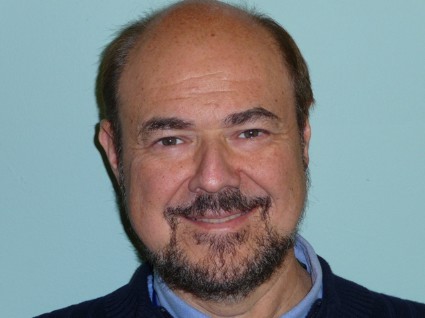User login
NEW YORK – A forthcoming rating system for mental health smartphone applications acknowledges that – for better or worse – these tools are in patients’ hands, Dr. Michael Van Ameringen said in a presentation at the annual meeting of the American Psychiatric Association.
"Like any medical professional, it is our role to keep ourselves updated with our patients’ concerns," Dr. Van Ameringen noted in a follow-up interview. "Many patients are using these apps to enhance the treatment they are receiving from us, or it is their primary source of treatment."
According to Dr. Van Ameringen, professor in the department of psychiatry and behavioral sciences at McMaster University, Hamilton, Ont., the initiative for a rating system comes from the board of directors of the Anxiety and Depression Association of America (ADAA), of which Dr. Van Ameringen is a member.
"Our goal was to make it easier for professionals and consumers to get unbiased professional ratings of currently available apps," Dr. Van Ameringen said. "We plan to rate each one, though we are not going to rank them or endorse one app over the other."
The list of apps was developed by a search of the iTunes store, Google Play store and BlackBerry World; the final review will be available on the ADAA website.
Dr. Van Ameringen pointed to two apps that will be featured on the ADAA review that he said have gained distinct popularity.
The first, Prolonged Exposure (PE) Coach, is intended to be used as a "treatment companion" during prolonged exposure therapy for posttraumatic stress disorder, according to the U.S. Department of Veterans Affairs website.
It was created by the U.S. Department of Defense’s National Center for Telehealth and Technology and Center for Deployment Psychology and the VA’s National Center for PTSD.
Another, MindShift, is geared toward "teens and young adults coping with anxiety," according to the website for AnxietyBC, a nonprofit that developed the app in concert with the BC Mental Health & Addiction Services, an agency of the Provincial Health Services Authority.
"We know that many of these apps are very popular and are downloaded a significant number of times," Dr. Van Ameringen said. "We don’t really know how many people are using them on a day-to-day basis."
Despite their popularity, the proliferation of mental health apps poses several issues for providers seeking to recommend their use.
"Confidentiality is the biggest challenge with these apps," Dr. Van Ameringen said. "Consumers may also believe that the app alone is a good substitute for professional assessment and treatment."
Perhaps the most worrisome problem is the fact that most apps have not been evaluated with customary scientific rigor, said Dr. Ameringen.
Going forward, said Dr. Van Ameringen, more clinical trials must be conducted on these apps’ efficacy, and head-to-head trials should compare them to current treatments.
One thing is sure: The mental health app landscape continues to expand, and patients have taken notice. That means providers must take notice, too.
"We need to understand where these apps fit into our current treatment model and how they can be used most effectively in our patients," he said.
Dr. Van Ameringen disclosed financial relationships with several pharmaceutical companies, including Valiant, Eli Lilly, Pfizer, and GlaxoSmithKline.
NEW YORK – A forthcoming rating system for mental health smartphone applications acknowledges that – for better or worse – these tools are in patients’ hands, Dr. Michael Van Ameringen said in a presentation at the annual meeting of the American Psychiatric Association.
"Like any medical professional, it is our role to keep ourselves updated with our patients’ concerns," Dr. Van Ameringen noted in a follow-up interview. "Many patients are using these apps to enhance the treatment they are receiving from us, or it is their primary source of treatment."
According to Dr. Van Ameringen, professor in the department of psychiatry and behavioral sciences at McMaster University, Hamilton, Ont., the initiative for a rating system comes from the board of directors of the Anxiety and Depression Association of America (ADAA), of which Dr. Van Ameringen is a member.
"Our goal was to make it easier for professionals and consumers to get unbiased professional ratings of currently available apps," Dr. Van Ameringen said. "We plan to rate each one, though we are not going to rank them or endorse one app over the other."
The list of apps was developed by a search of the iTunes store, Google Play store and BlackBerry World; the final review will be available on the ADAA website.
Dr. Van Ameringen pointed to two apps that will be featured on the ADAA review that he said have gained distinct popularity.
The first, Prolonged Exposure (PE) Coach, is intended to be used as a "treatment companion" during prolonged exposure therapy for posttraumatic stress disorder, according to the U.S. Department of Veterans Affairs website.
It was created by the U.S. Department of Defense’s National Center for Telehealth and Technology and Center for Deployment Psychology and the VA’s National Center for PTSD.
Another, MindShift, is geared toward "teens and young adults coping with anxiety," according to the website for AnxietyBC, a nonprofit that developed the app in concert with the BC Mental Health & Addiction Services, an agency of the Provincial Health Services Authority.
"We know that many of these apps are very popular and are downloaded a significant number of times," Dr. Van Ameringen said. "We don’t really know how many people are using them on a day-to-day basis."
Despite their popularity, the proliferation of mental health apps poses several issues for providers seeking to recommend their use.
"Confidentiality is the biggest challenge with these apps," Dr. Van Ameringen said. "Consumers may also believe that the app alone is a good substitute for professional assessment and treatment."
Perhaps the most worrisome problem is the fact that most apps have not been evaluated with customary scientific rigor, said Dr. Ameringen.
Going forward, said Dr. Van Ameringen, more clinical trials must be conducted on these apps’ efficacy, and head-to-head trials should compare them to current treatments.
One thing is sure: The mental health app landscape continues to expand, and patients have taken notice. That means providers must take notice, too.
"We need to understand where these apps fit into our current treatment model and how they can be used most effectively in our patients," he said.
Dr. Van Ameringen disclosed financial relationships with several pharmaceutical companies, including Valiant, Eli Lilly, Pfizer, and GlaxoSmithKline.
NEW YORK – A forthcoming rating system for mental health smartphone applications acknowledges that – for better or worse – these tools are in patients’ hands, Dr. Michael Van Ameringen said in a presentation at the annual meeting of the American Psychiatric Association.
"Like any medical professional, it is our role to keep ourselves updated with our patients’ concerns," Dr. Van Ameringen noted in a follow-up interview. "Many patients are using these apps to enhance the treatment they are receiving from us, or it is their primary source of treatment."
According to Dr. Van Ameringen, professor in the department of psychiatry and behavioral sciences at McMaster University, Hamilton, Ont., the initiative for a rating system comes from the board of directors of the Anxiety and Depression Association of America (ADAA), of which Dr. Van Ameringen is a member.
"Our goal was to make it easier for professionals and consumers to get unbiased professional ratings of currently available apps," Dr. Van Ameringen said. "We plan to rate each one, though we are not going to rank them or endorse one app over the other."
The list of apps was developed by a search of the iTunes store, Google Play store and BlackBerry World; the final review will be available on the ADAA website.
Dr. Van Ameringen pointed to two apps that will be featured on the ADAA review that he said have gained distinct popularity.
The first, Prolonged Exposure (PE) Coach, is intended to be used as a "treatment companion" during prolonged exposure therapy for posttraumatic stress disorder, according to the U.S. Department of Veterans Affairs website.
It was created by the U.S. Department of Defense’s National Center for Telehealth and Technology and Center for Deployment Psychology and the VA’s National Center for PTSD.
Another, MindShift, is geared toward "teens and young adults coping with anxiety," according to the website for AnxietyBC, a nonprofit that developed the app in concert with the BC Mental Health & Addiction Services, an agency of the Provincial Health Services Authority.
"We know that many of these apps are very popular and are downloaded a significant number of times," Dr. Van Ameringen said. "We don’t really know how many people are using them on a day-to-day basis."
Despite their popularity, the proliferation of mental health apps poses several issues for providers seeking to recommend their use.
"Confidentiality is the biggest challenge with these apps," Dr. Van Ameringen said. "Consumers may also believe that the app alone is a good substitute for professional assessment and treatment."
Perhaps the most worrisome problem is the fact that most apps have not been evaluated with customary scientific rigor, said Dr. Ameringen.
Going forward, said Dr. Van Ameringen, more clinical trials must be conducted on these apps’ efficacy, and head-to-head trials should compare them to current treatments.
One thing is sure: The mental health app landscape continues to expand, and patients have taken notice. That means providers must take notice, too.
"We need to understand where these apps fit into our current treatment model and how they can be used most effectively in our patients," he said.
Dr. Van Ameringen disclosed financial relationships with several pharmaceutical companies, including Valiant, Eli Lilly, Pfizer, and GlaxoSmithKline.
EXPERT ANALYSIS AT THE APA ANNUAL MEETING

